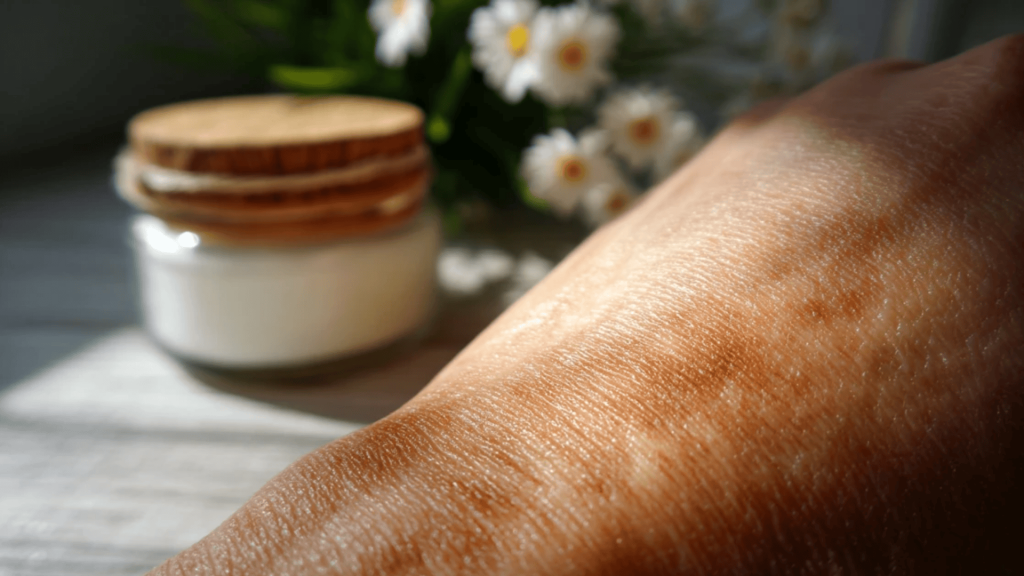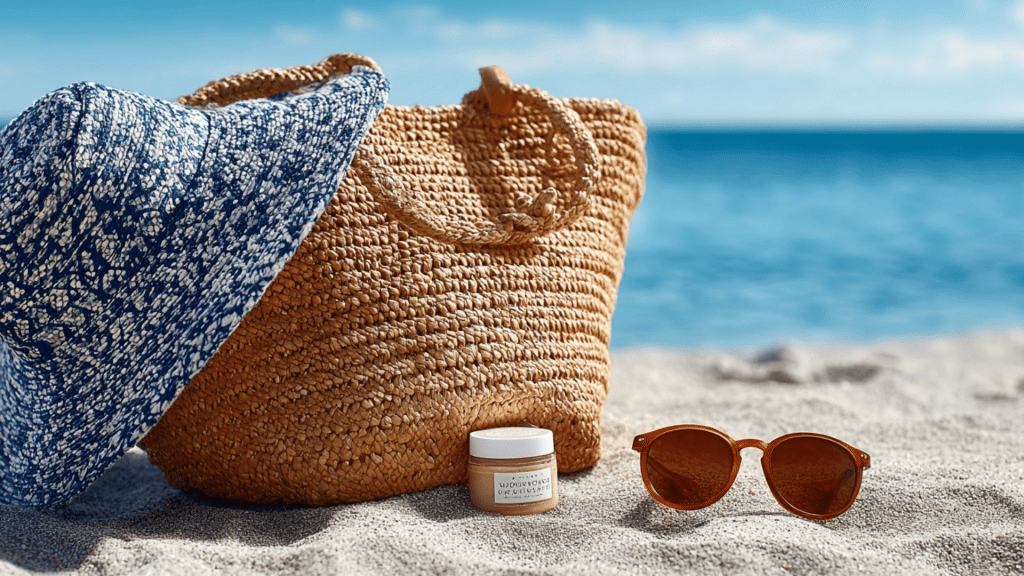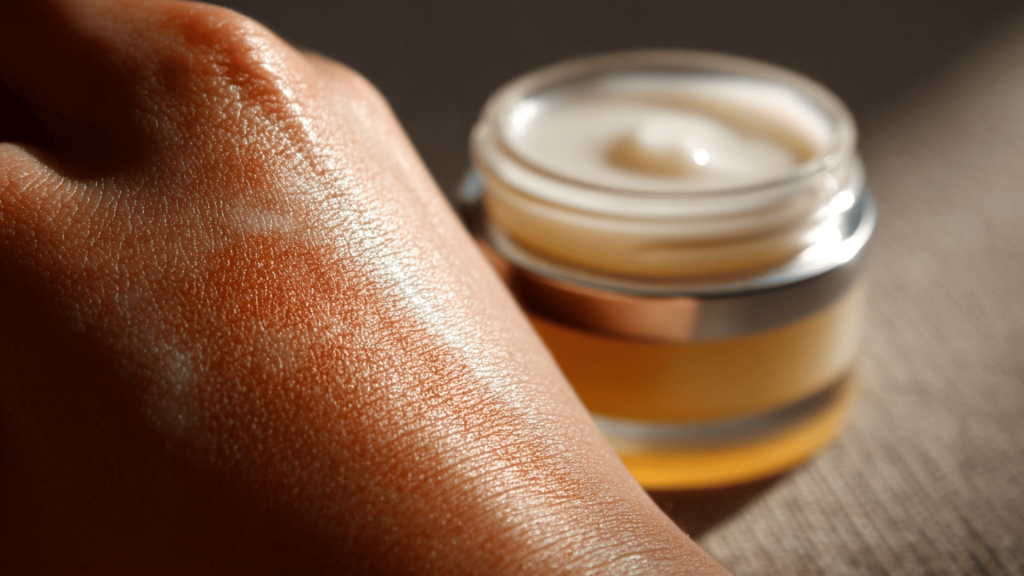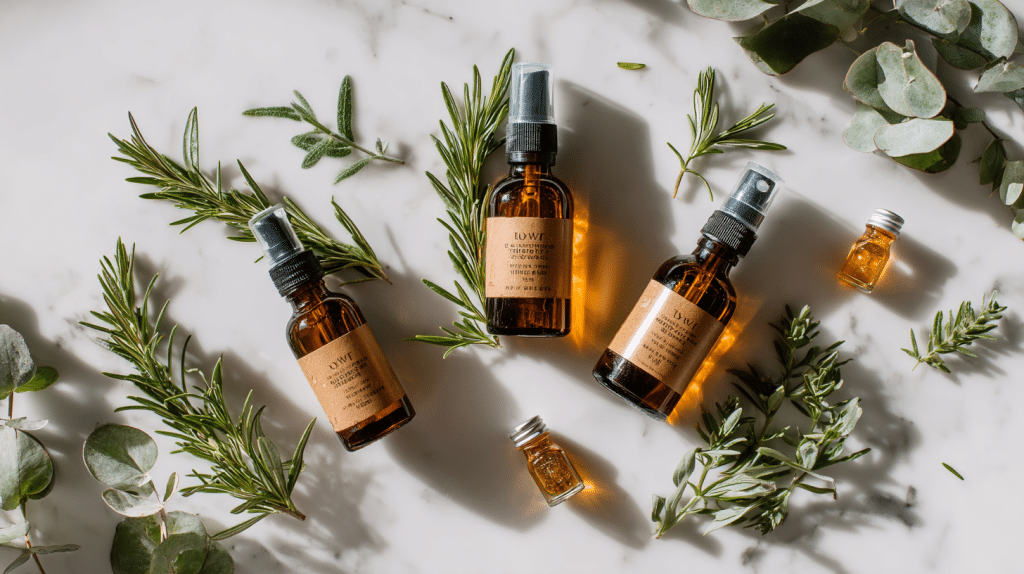Picture this: you’re packing for a beach day and spot a jar of coconut oil in your bathroom. It smells amazing, feels silky on the skin, and you’ve heard it has natural healing powers.
You pause and wonder: Can this be used as sunscreen?
The idea of using a natural sunscreen, such as coconut oil, sounds appealing. After all, it’s chemical-free, affordable, and already used in skincare.
But before swapping your SPF bottle for that tropical-smelling jar, it’s worth asking: is coconut oil a sunscreen, or is it a risky shortcut?
Let’s study what coconut oil really does for your skin, how much protection it provides, and why experts say it shouldn’t replace sunscreen.
Is Coconut Oil a Sunscreen?
Coconut oil has become a go-to in beauty routines. People use it as a moisturizer, makeup remover, lip balm, and even hair conditioner.
So naturally, many are curious if it can double as a sunscreen.
The truth? Coconut oil does provide some sun protection, but not enough. Research indicates that it has a sun protection factor (SPF) of approximately 4 to 7.
While that may sound like a good idea, dermatologists recommend using at least SPF 30 for daily protection.
That means coconut oil blocks only about 20% of UV rays, while SPF 30 blocks about 97%.
While it’s tempting to label coconut oil-based sunscreens as natural and safe, the reality is that they don’t offer strong enough protection on their own.
Why People Use Coconut Oil for Sun Protection
Although science suggests it’s weak against UV rays, many people still use coconut oil as a sunscreen. Here’s why:
- It feels great on the skin: Coconut oil spreads easily, absorbs well, and leaves a soft, smooth finish.
- Moisturizing properties: It helps keep skin hydrated, which feels nice after time outdoors.
- Antioxidant content: Coconut oil contains compounds like vitamin E, which can help fight some free radical damage.
- Natural appeal: Many people want to avoid chemicals in skincare, so a natural sunscreen, such as one made from coconut oil, feels safer.
The problem is that none of these benefits actually replace the strong UV protection your skin needs to prevent burns, premature aging, or even skin cancer.
The Risks of Using Coconut Oil as Sunscreen

Here’s why dermatologists and health experts warn against relying only on coconut oil sunscreen:
1. Too Low SPF
Coconut oil’s SPF is only around 4 to 7, far below the dermatologist-recommended SPF 30.
That means it blocks only a small fraction of UV rays, leaving your skin exposed to burns and long-term sun damage with extended use.
2. No Broad-Spectrum Protection
True sunscreens protect against both UVA and UVB rays. Coconut oil may offer minor UVB shielding but almost no protection against UVA.
Since UVA rays penetrate deeper into the skin, this gap can lead to premature aging and increased risk of skin cancer.
3. False Sense of Security
Because coconut oil feels soothing and moisturizing, people may believe it offers enough sun protection.
This false confidence often leads to spending more time outdoors without reapplying sunscreen, raising the likelihood of painful burns and dangerous skin damage over time.
4. Not Tested or Regulated
Unlike approved sunscreens, which undergo rigorous safety and SPF testing, coconut oil has never been certified as a protective agent.
While natural, it isn’t regulated for UV defense, meaning relying on it alone puts your skin health at serious risk.
Tips for Safe Sun Protection
Instead of relying on coconut oil sunscreen, follow these safe sun habits:
- Apply SPF 30 or higher: Choose a broad-spectrum sunscreen.
- Reapply every 2 hours: Especially after swimming or sweating.
- Wear protective clothing: Hats, sunglasses, and long sleeves help.
- Seek shade: Stay out of direct sunlight between 10 a.m. and 4 p.m.
- Use coconut oil as after-care: Hydrate your skin after sun exposure, not instead of sunscreen.
Protect your skin wisely by combining sunscreen with smart habits, and use coconut oil only as a soothing after-sun care.
Coconut Oil’s Real Benefits for Skin
Now, this doesn’t mean coconut oil is useless; it just isn’t a reliable sunscreen. Here’s what it actually does well:
- Moisturizer: Helps with dry, flaky skin.
- Soothing agent: Can calm irritation or mild inflammation.
- Antimicrobial: Contains lauric acid, which may help reduce bacteria on the skin.
- Post-sun care: Works as an after-sun moisturizer to reduce dryness after a day outside.
So, yes, coconut oil is beneficial for skin health, but labeling it as a sunscreen is misleading.
How Coconut Oil Fits Into Sun Protection

Coconut oil can play a role in sun care, but it should never be used as a replacement for sunscreen. Think of it as a supportive step rather than your main defense.
It works well as an after-sun moisturizer, calming and hydrating skin that feels dry after time outdoors.
Some people also mix it into DIY blends with zinc oxide powder for added protection. Beyond skincare, it helps protect hair from sun and saltwater damage.
Still, relying solely on coconut oil leaves your skin vulnerable.
Natural Sunscreen Alternatives That Work Better
Looking for safer options? These natural ingredients deliver stronger sun protection and broader coverage than coconut oil alone.
| Ingredient | Benefit |
|---|---|
| Zinc Oxide | Reflects UV rays, broad-spectrum, safe for sensitive skin |
| Titanium Dioxide | Blocks UVA and UVB, lightweight mineral option |
| Red Raspberry Seed Oil | Add mild SPF, nourishing, best with zinc/titanium |
By choosing these mineral-based protectants, you get gentle yet effective sun defense without chemicals, keeping your skin safe and naturally nourished.
Personal Stories & Experiences
People worldwide tried coconut oil as sunscreen, but stories reveal burns, regrets, and inadequate protection.
1. Reddit Voices
On Reddit, one commenter shared how the idea spreads through social circles:
“My acquaintance whose husband works as a chemist… told me that coconut oil is the best sunscreen. Without all those filthy chemicals.” (Reddit)
This reflects the ‘natural is better’ appeal, but clearly shows a misconception, as the advice came from hearsay rather than science.
2. Sunburn Experience
A Reddit user described what happened after trying coconut oil for sun protection:
“I put coconut oil directly on the sunburn because someone said it would help…it only made it worse!” (Reddit)
This highlights how coconut oil not only failed to prevent sunburn but also worsened discomfort when used afterward.
3. Traveler & Forum Stories
In travel and skincare forums, users shared mixed outcomes:
Some said coconut oil “felt great on the skin” and helped them tan, but many reported burns, uneven tans, or later realizing it wasn’t effective. (TripAdvisor)
These experiences highlight the disparity between the perceived benefits of coconut oil and the actual lack of sun protection.
Final Thoughts
So, is coconut oil a sunscreen? Not quite. It offers only a minimal level of sun protection and cannot replace dermatologist-recommended protection.
The real risk is that people may feel safe when they’re not, leading to burns and long-term damage.
A smarter approach is to see it as a helper, not a shield. Use it as a natural moisturizer to soothe dryness, or as after-sun care, while relying on broad-spectrum SPF for real protection.
With balance, you enjoy natural nourishment without sacrificing essential sun protection.






